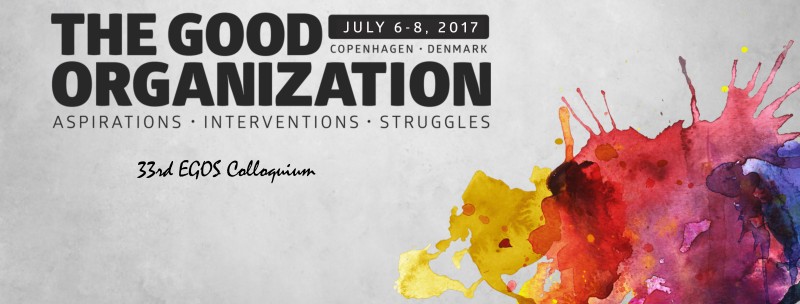Sub-theme 62: Secrecy, Secrets and Organizations
Call for Papers
Secrecy is a fundamental part of organizations. It is neither an anomaly nor is it only found in unusual or special organizations,
but rather it is woven into the fabric of all organizations in a multitude of ways. It has an obvious functionality in, for
example, protecting knowledge and information from competitors. It is present when information about clients and employees
is restricted, and in every day interactions, for example when people share confidential gossip. There is a wide range of
forms of secrecy, encompassing the formal secrecy of trade and state secrecy based on law and regulation, informal secrecy
based on networks and trust, and public or open secrecy which are both known and not-known in organizations. While in discussions
of transparency, public accountability and organizational knowledge-sharing secrecy is typically regarded as ‘evil’, in those
regarding the protection of innovation, privacy or national security it is seen as ‘good’.
In moving beyond
the dichotomy of good and evil, the aim of the sub-theme is to explore the significance of secrecy in organizational life.
Indeed, apart from being omnipresent secrecy creates a social order by establishing boundaries between insiders and outsiders.
Secrecy thus not only cuts through and overlaps with a wide array of organizational phenomena, such as trust, gossip, elite,
identity, control, culture, creativity, knowledge, identity, just to name a few, but also can organize social relations and
thus bring about groups, networks, hierarchies and indeed organizations. Secrecy can arouse strong emotional reactions, from
the sense of betrayal, superiority to uncertainty and fear, amongst the insiders and outsiders alike. Whereas studies focusing
on organizational secrecy are still rare, rich descriptions of secrecy can be found in fiction, such as Dostoyevsky and Kafka
or for that matter in espionage novels and films.
Secrecy has recently become a matter of greater attention
within organization studies (e.g. Costas & Grey, 2014; 2016; Parker, 2016; Scott, 2013). Building on this, in this sub-theme
we invite papers that address the multiple ways in which secrecy matters in and for organizations from a theoretical and/or
empirical (including fictional) perspective. The focus might be secrecy within organizations or organizations that are themselves
secret. In particular, we encourage papers to explore:
- How does secrecy interact with organizational phenomena? What role do formal, informal and/or public secrecy play here?
- How does the lens of secrecy allow us to rethink organizations, groups, networks and hierarchies? What metaphors of organization and organizing serve to bring into focus the significance of secrecy?
- How can we methodologically study that which is kept hidden?
- What insights does the world of fiction provide us?
- How does secrecy in organizations relate to debates in organization studies about accountability, trust and transparency?
- How does secrecy in organizations relate to public and political debates about privacy, big data and surveillance?
References
- Costas, J., & Grey, C. (2014): “Bringing Secrecy into the Open: Towards a Theorization of the Social Processes of Organizational Secrecy.” Organization Studies, 35 (10), 1423–1447.
- Costas, J., & Grey, C. (2016): Secrecy at Work. The Hidden Architecture of Organizational Life. Stanford, CA: Stanford University Press.
- Parker, M. (2016): “Secret Societies: Intimations of Organization.” Organization Studies, 37 (1), 99–113.
- Scott, C. (2013): Anonymous Agencies, Backstreet Businesses, and Covert Collectives: Rethinking Organizations in the 21st Century. Stanford, CA: Stanford University Press.


